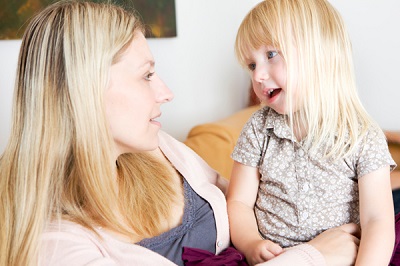 Why do children misbehave? There can be any number of reasons, but primarily, misbehaviour is an indication that a need of theirs is not being met. This could be a social need, where the child reacts with attention seeking behaviours or refusal to take part in activities; a mental need, where possibly the child is over- or under-stimulated and is looking for a means of entertainment or distraction; a physical need, where the child may be lacking in nutrition, sleep, exercise or physical ability for the activity. The list goes on.
Why do children misbehave? There can be any number of reasons, but primarily, misbehaviour is an indication that a need of theirs is not being met. This could be a social need, where the child reacts with attention seeking behaviours or refusal to take part in activities; a mental need, where possibly the child is over- or under-stimulated and is looking for a means of entertainment or distraction; a physical need, where the child may be lacking in nutrition, sleep, exercise or physical ability for the activity. The list goes on.
The important thing is how we deal with solving these issues, or better yet, prevent them from occurring in the first place. As the saying goes, "prevention is better than cure". This is why preschool teachers regularly sit back to observe and record the behaviours and goings-on of each student. Simply observing a child can provide a window into their mindset, enabling you to better understand them and provide for their needs.
One major need of the pre-schooler is ‘security’. As I’m sure you’ll agree, young children come face to face with changes on a regular basis. In this big world, which they are fast discovering, it is important for them to have a sense of control and mastery over their environments. This helps build their confidence and encourages them to act in a desirable manner. Adults can aid them with the process.

Here are some simple tips to get started:
-
Routine – Establishing routines helps the child to feel secure, practice and develop skills and act confidently.
-
Set basic rules - Keep rules clear, simple and to a minimum.
-
Explanations – Engage the children in discussions about the rules – reasons for them and possible consequences for not following them.
-
Avoid lectures – When children are acting up, try distracting them with an activity, which may help them to refocus. If this doesn’t do the trick, try offering a choice of follow-on actions. Giving them a sense of power and control over the outcome can work wonders and may help you to avoid a lot of headaches!
-
Be specific - In cases where the child must be corrected, clearly state which behaviours are not acceptable. Make sure the child understands why the behaviours are not acceptable, and encourage them to apologise. In most cases you can discuss alternative, more appropriate ways of behaving.
-
Positive reinforcement – Recognise and reward good behaviour by acknowledging it and praising the child’s efforts. Children learn very quickly to equate these good behaviours with positive feelings of achievement and satisfaction, promoting their continuation.
-
Role modelling – Remember, children observe too! They model themselves on adults. Be aware of this and set good examples.
Above all, be confident, consistent and calm in your approach to behaviour management. Children are smart and can see chinks in the armour a mile off! They may test you from time to time, but they will respect and appreciate your efforts in the long run. Sometimes ‘tough love’ doesn’t need to be so tough!








